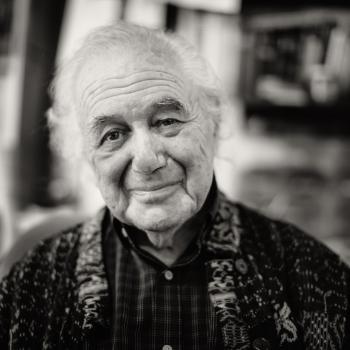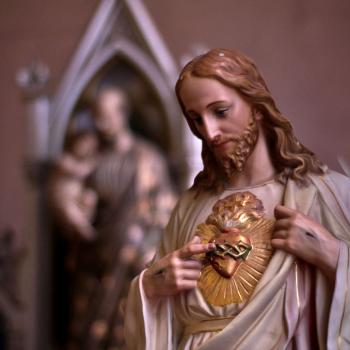I read a lot of religion and spirituality books and it’s rare to come across one that changes the way you view the world—a book that makes you stop and think, hey, I’ve never looked at it that way. I now have just such a book on my nightstand: The Universal Christ (subtitled How a Forgotten Reality Can Change Everything We See, Hope For, and Believe), by the Franciscan priest Richard Rohr.
Have you heard of Rohr? He is one of the great Christian writers and teachers of our time and has penned several books, most grounded in Christian mysticism. He is also the founder of the Center for Action and Contemplation in New Mexico. To give you an idea of his reach, the back cover of his book has quotes of praise from Melinda Gates, rock star Bono and the head of the Episcopal Church in America.
Now, I’m going to break the wisdom found in The Universal Christ into three parts, and the first one is about an important point I had read many years ago but had filed away and had forgotten. In Rohr’s words:
Christ is not Jesus’s last name
Christ was in fact an honorary name, a point made in this lightly edited passage from the famed Indian monk Paramahansa Yogananda, author of the book Autobiography of a Yogi:
There is a distinguishing difference of meaning between Jesus and Christ. His given name was Jesus; his honorific title was “Christ.” In his human body called Jesus was born the vast Christ Consciousness, the omniscient Intelligence of God omnipresent in every part and particle of creation. This Consciousness is the “only begotten Son of God,” so designated because it is the sole perfect reflection in creation of the Transcendental Absolute, Spirit or God the Father. All souls who become united with Christ Consciousness by intuitive Self-realization are rightly called sons of God.
Rohr believes that our inability to separate Jesus from Christ has left us worshipping the messenger and not the message. Jesus showed us what a complete human might look like if we lived to our highest potential—and wanted us to achieve this potential, this Christ Consciousness, in our own lives.
Rohr tells us the Christ is “not just Jesus of Nazareth, but something much more intense, even cosmic in significance.” When we come to realize that this Christ consciousness is possible for us, it “has the power to radically alter what we believe, how we see others and relate to them and our sense of how big God might be.” We become the fully realized humans we were meant to be,
The author asks us to consider:
- What if Christ is a name for the transcendent contained within every one of us?
- What if Christ is a name for the immense spaciousness of all true Love?
- What if Christ is another name for everything in in its fullness?
Rohr contemplates a world where the consciousness Jesus realized is available to us all.
He points out that most Christians believe that “God’s presence was poured into a single human being.” He then asks us to flip the script. What if instead of believing that God came into the world through Jesus, Jesus simply realized what was already there—a world saturated by the presence of God. A presence we too can immerse ourselves in!
This is not as difficult as it seems, as Rohr points out this Divine presence seeks “connection and communion,” not separation or division. God wants to connect with us. Seek and you will find. To that end, Rohr believes that “in Christianity, we have made the mistake of limiting the Creator’s presence to just one human manifestation, Jesus.”
To prove this point, Rohr quotes an early Christian sage, St. Athanasius (296-373), who wrote the following:
God was consistent in working through one man to reveal himself everywhere…so that nothing was left devoid of his Diversity and self-knowledge…so that “the whole universe was filled with the knowledge of the Lord as the waters fill the sea.”
Rohr says that God needed us to focus our attention on someone and that someone was Jesus. But there was just one issue: we went too far. We spent and spend our precious time here on earth worshipping Jesus the messenger and trying to get other people to do the same. This obsession often becomes “a pious substitute for actually following what he taught.”
He writes that the driving mission of the Apostle Paul was “to demonstrate that Jesus was the Christ.” That’s why believers to this day are not called “Jesuits” but “Christians.” Jesus can hold together one group or religion. Chris can hold together everything.
But what was the true message of Jesus—and what does it mean to live our lives the way Jesus wanted us to, in Christ Consciousness? See part 2 here.
To make sure you don’t miss an issue of Wake Up Call, sign up here to have it delivered weekly to your email inbox.


















